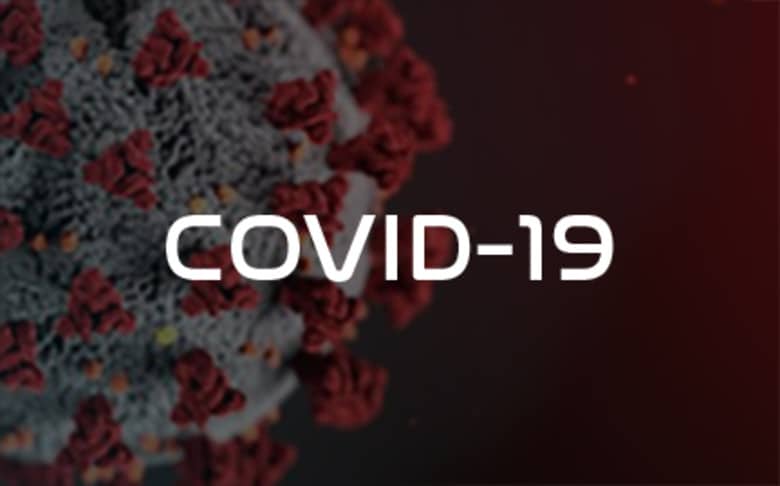Facts About Coronavirus
In any situation of a serious health concern, it’s important to separate facts from sensationalism. It’s incredibly easy for misinformation to spread and to be considered fact, so we wanted to take a moment to discuss the facts about coronavirus, how you can protect yourself, and what we can all do to protect others.
What is Coronavirus?
Coronavirus, or COVID-19, is a new coronavirus with symptoms of fever, cough, and shortness of breath. It is being called COVID-19 because the official name for the disease is coronavirus disease 2019, with “CO” standing for corona, “VI” for virus, and “D” for disease. There are actually several types of coronaviruses that are part of the coronavirus family, and they range in severity from the common cold to Middle East Respiratory Syndrome (MERS-CoV) and Severe Acute Respiratory Syndrome (SARS-CoV).
Who Is At Risk?
Although anyone can be infected by the coronavirus, certain groups are at higher risk of becoming seriously ill or experiencing complications from this virus. These groups include older adults, those with serious chronic medical conditions, including heart disease, diabetes, and lung disease, and anyone with a compromised immune system.
Fortunately, there is currently no evidence that children, unless they have a compromised immune system, are more susceptible or sensitive to coronavirus, and most confirmed cases in China occurred in adults. Of course, children should still be taught to take the same preventive actions as adults.
What Can I Do to Protect Myself?
Despite the fact that there is currently no vaccine for coronavirus, there are preventive actions that we can all take. The most important thing in avoiding this virus is doing whatever you can to avoid exposure and exposing others.
Coronavirus is thought to mainly be spread from person-to-person, either by coming into close contact (within 6 feet) with someone who is infected or via respiratory droplets that are produced when an infected person coughs or sneezes. When someone coughs or sneezes, these droplets that are produced can potentially land in the mouths or noses of people surrounding them, which can lead to these droplets being inhaled into the lungs.
Here’s what you should be doing (and avoiding) in order to protect yourself:
- Wash your hands often with soap and water. You should also wash your hands for at least 20 seconds, especially after being in public spaces, coughing, or sneezing.
- If you do not have access to soap and water, use a hand sanitizer containing at least 60% alcohol. When applying, cover the entire surface of your hands and rub them together until dry. If you wipe your hands before the sanitizer has dried, it will not work.
- If you have not washed your hands, avoid touching your mouth, nose, and eyes.
- Avoid close contact (being within 6 feet) with people who are sick.
- If coronavirus is known to be spreading within your community, do what you can to put space between yourself and others, especially if you are part of a high-risk group.
What to do to protect others:
- Stay home if you’re sick unless getting medical care.
- Cover your mouth and nose with either a tissue or the inside of your elbow when you cough or sneeze.
- Throw used tissues in the trash.
- Wear a face mask if you are sick. If you’re sick, you should be wearing a face mask when around other people and when entering a healthcare provider’s office. If you are unable to wear a face mask for whatever reason, be sure to cover your mouth and nose when coughing or sneezing.
- If you are not sick you do not need to wear a face mask unless you are treating someone who is sick and cannot wear a face mask. Increased demand for face masks can lead to a short supply, leaving health providers without them.
- Clean and disinfect any surfaces that are regularly touched on a daily basis. High touch surfaces include tables, doorknobs, keyboards, desks, phones, toilets, light switches, faucets, countertops, handles, and sinks.
- Clean any dirty surfaces with detergent or soap and water before disinfecting.
What Should I Do if I Get Sick?
If you believe you have been exposed to coronavirus, or know that you have been in close proximity to someone who is infected and have developed symptoms including dry cough, difficulty breathing, and fever, call your doctor immediately. You should also have your healthcare provider contact your state or local health department if you are being monitored for COVID-19.
After doing that, these are the steps you should be taking to avoid spreading your illness to others:
- Stay home, avoid public areas and public transportation.
- Separate yourself from other people and animals within your home. As much as possible, you should stay in a specific room and use a separate bathroom from others in your household.
- Before visiting your doctor, call ahead and let them know that you have or may have COVID-19 in order to allow them to take necessary steps to prevent others from being exposed.
- Avoid sharing personal household items. You should not share dishes, drinking glasses, eating utensils, towels, or bedding, and these items should be washed thoroughly with soap and water after use.
The most important thing to do at the moment is to stay aware of the emerging facts about coronavirus from reputable sources, such as the CDC, WHO, and the FDA, and to monitor your symptoms and take the necessary steps if you show signs of coronavirus. Staying calm, informed, and being mindful of taking preventive actions will be everyone’s best bet in keeping themselves and others safe.


